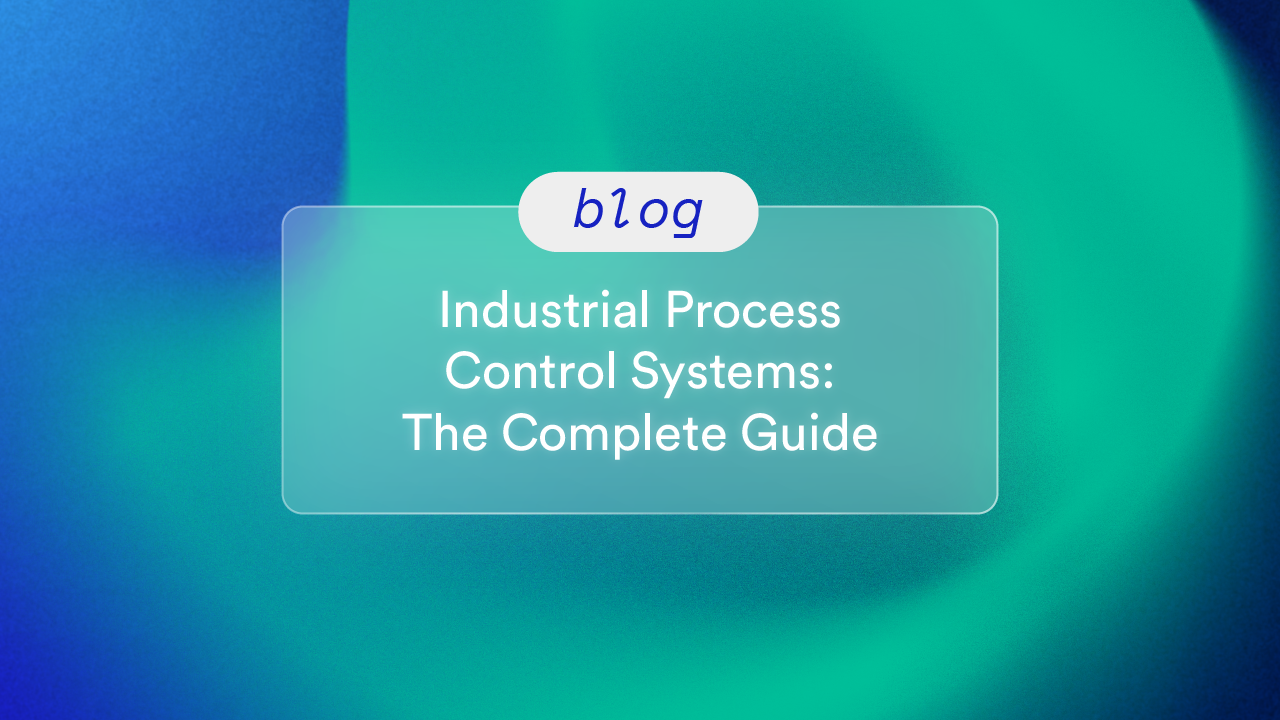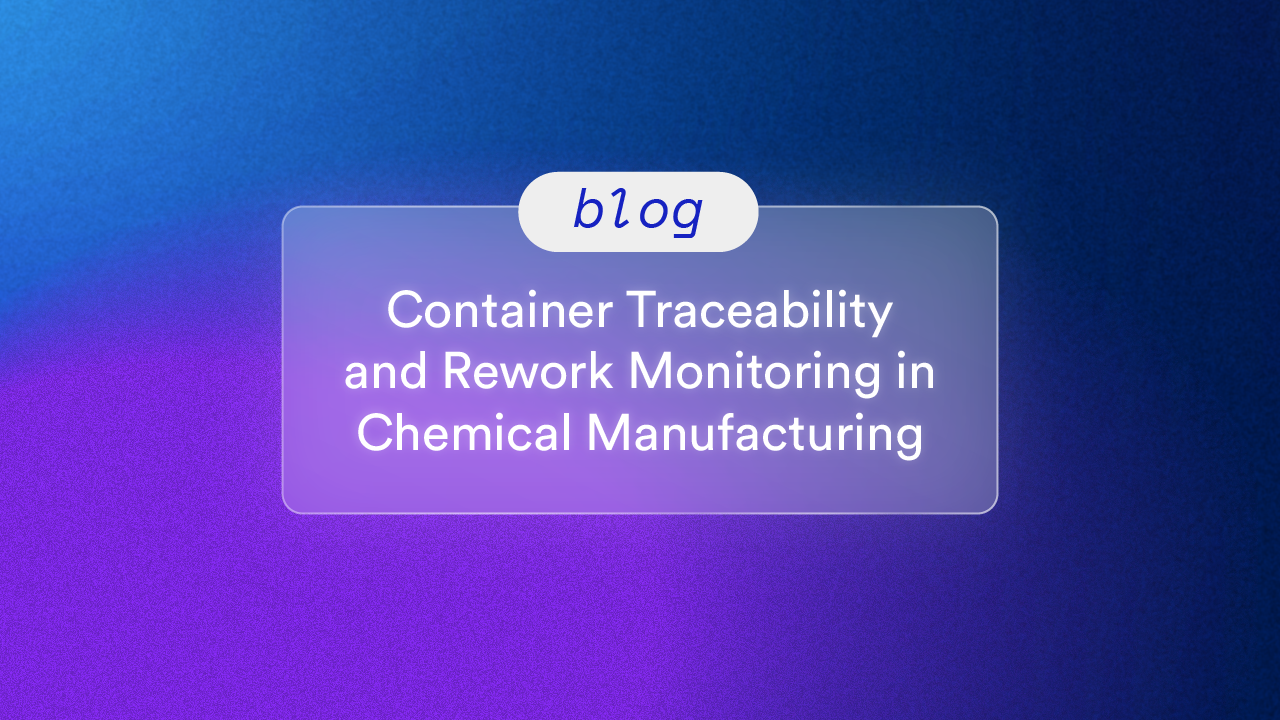Introduction
Imagine being able to pinpoint the exact origin of a product’s raw materials, track its journey through every stage of production, and ensure its quality and safety before it reaches the consumer. When businesses implement a comprehensive, end-to-end Traceability solution—like TrakSYS™—that vision becomes a reality. From enhanced quality control to improved supply chain transparency to streamlined regulatory compliance, Traceability plays a part in all of it.
While the overarching benefits of Traceability are certainly noteworthy, this blog aims to take a deeper look at the topic of Traceability itself: what is it, how does it work, and what role does it play in today’s manufacturing ecosystems?

What is Traceability in Manufacturing?
Traceability in manufacturing refers to the ability to track the movement of raw materials, components, and finished products throughout every stage of production, processing, and distribution. Having a comprehensive traceability solution ensures manufacturers can monitor the entire product lifecycle, from sourcing materials to delivering finished goods to customers.
Key Characteristics
- Forward Traceability – Tracks a product’s journey from its origin to the end-user, ensuring that each step in the manufacturing process is documented and verifiable.
- Backward Traceability – Traces a product or component back through the supply chain to its source, helping manufacturers quickly identify the root cause of any quality or safety issues.
Examples of Traceability in Action
Food and Beverage
In the food and beverage sector, traceability is essential for ensuring product safety, maintaining regulatory compliance, and protecting consumer health. With increasing global food supply chains, the ability to track ingredients from their source to the final packaged product is crucial.
For instance, if a batch of packaged salad is found to contain contaminated lettuce due to a bacterial outbreak, a robust traceability system allows manufacturers to quickly identify which farms supplied the contaminated produce, which processing facilities handled it, and which distribution centers shipped it to retailers. This rapid identification enables targeted recalls, preventing widespread illness, reducing food waste, and minimizing brand damage.
Beyond recalls, traceability also helps ensure compliance with food safety regulations such as the FDA’s Food Safety Modernization Act (FSMA) or the Global Food Safety Initiative (GFSI) standards. It also strengthens consumer trust, as companies can provide transparency regarding ingredient origins, processing conditions, and quality control measures.
Automotive
The automotive industry relies on precision, quality assurance, and safety standards at every stage of production. Given the complexity of modern vehicles, traceability is critical to managing recalls, maintaining compliance, and improving supply chain visibility. For example, if a series of defective airbags is discovered, manufacturers must be able to quickly trace them back to the specific supplier, production date, and affected vehicle models. A well-integrated traceability system enables businesses to pinpoint where the defective components were installed, helping them execute targeted recalls rather than mass replacements, which can be costly and inefficient.
Additionally, many OEMs (Original Equipment Manufacturers) require suppliers to adhere to strict traceability and quality control measures to maintain compliance with industry standards such as IATF 16949 and ISO 9001.
Why is Traceability Important in Manufacturing?
While the above examples provide insight into how Traceability is successfully utilized in a given industry, here is a more holistic breakdown of why businesses—across all industries and process types—elect to implement these solutions.
Improved Product Quality and Safety
- Recall Management – As described above, Traceability helps manufacturers quickly identify and isolate defective or contaminated products, keeping consumers safe and ensuring brand integrity.
- Proactive Quality Control – Real-time monitoring enables early detection of production issues, allowing for corrective actions before defective products reach the market.
Enhanced Supply Chain Visibility
- Identify Bottlenecks – A well-implemented traceability system helps pinpoint inefficiencies in production and logistics, improving overall operations.
- Reduce Inventory Costs – Better tracking of materials and finished goods improves inventory management, reducing holding costs and stockouts.
Increased Customer Trust and Loyalty
- Transparency – Providing traceability data reassures customers that products meet safety and quality standards, enhancing brand trust.
- Brand Reputation – An effective traceability system protects brand integrity by ensuring only safe, high-quality products reach the market.
Regulatory Compliance
- Meeting Industry Standards – Many industries require strict traceability compliance, including FDA regulations, ISO certifications, and GMP standards. Manufacturers must have a structured approach to documenting and auditing their processes to avoid penalties.
How to Implement Traceability in Manufacturing
For businesses looking to implement or optimize their existing Traceability solutions, here is a high-level look at the steps to be followed.
Choose the Right Technology
- Barcode and RFID – Automated tracking technologies such as barcodes, direct part marking, and RFID enhance accuracy and efficiency.
- Data Collection and Management Systems – A purpose-built Manufacturing Execution System (MES) enables real-time data collection, aggregation, and analysis, centralizing product tracking and ensuring compliance.
Develop a Traceability Plan
- Define Scope and Objectives – Identify what needs to be tracked, which data points are critical, and what outcomes are expected.
- Map Your Supply Chain – Understanding all touchpoints within the supply chain ensures that traceability covers every stage of production and distribution.
- Integrate with Existing Systems – Connecting the traceability system with ERP, LIMS, and MES enhances data accuracy and operational efficiency.
Train Employees
- Data Entry and Accuracy – Proper training ensures employees understand the importance of accurate data input to maintain system integrity.
- System Usage – Employees should be well-versed in how to use traceability tools effectively to maximize efficiency and compliance.
How TrakSYS Enables Effective Traceability
Traceability is far more than a mere compliance requirement—it’s a strategic advantage that enhances product quality, supply chain efficiency, and customer trust. That said, achieving end-to-end traceability requires a centralized, intelligent system that seamlessly connects data points across production, quality control, and the supply chain.
When companies utilize a Traceability solution that is part of a greater MES—as is the case with TrakSYS—they ensure they have access to:
- Comprehensive forward and backward traceability to track materials and products at every stage.
- Real-time quality monitoring to proactively detect and address issues.
- Automated compliance tracking to meet industry regulations with accurate record-keeping.
- Seamless integration with existing systems to provide a unified data infrastructure.
When it comes to providing businesses with the enterprise-wide visibility, knowledge, and control they need to effect meaningful change, maintain compliance, and bolster their brand integrity, TrakSYS is here to help.
Interested to learn more about how TrakSYS-powered Traceability can empower your operation? Contact us today.
FAQs
Related Blog Posts


Let’s Build Your Plan
We’ll help you create the right configuration—today and for the future.













